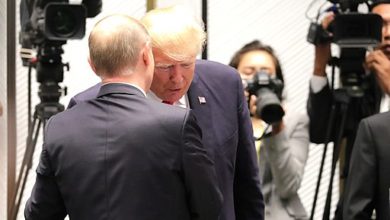World
H1B Visa: Indian IT Companies’ Resort To Subcontracting To Fill The Gap
Most Indian tech companies' expenditure on subcontracting increased during the July-September quarter

The Donald Trump administration has already announced that it is planning to make major changes to the US H1B visa policy. While the H1B visa changes are expected to get officially announced next year, the mere announcement has begun showing its effects.
According to an analysts’ note released by Kotak Institutional Equities Research on Tuesday, most Indian tech companies saw a significant year-on-year rise in the share of revenue spent on subcontracting during the July-September quarter this year.
The IT companies are now resorting to subcontracting as a short-term measure to fill gaps in supply intended to be filled through H-1B workers or offshoring, to avoid drag on margins. According to Kawaljeet Saluja and Sathish Kumar from Kotak Institutional Equities Research, subcontracting levels are expected to be up in the short to medium term as companies try to find other ways to offset the supply gap due to the H-1B worker shortage.
The IT companies have increased recruiting professionals from the US’s neighbor countries like Mexico and Canada through the TN visa category.
“Unlike H-1B visas, TN visas have no application timeline, are quicker and cheaper to process, have no annual quota and can be renewed indefinitely,” Saluja and Kumar wrote in the analysts’ note, reported Quartz.
The US government has already tightened the criteria for granting H-1B visas which includes an increase in paperwork. Furthermore, more and more H1B visa applications are being rejected than ever before. The Trump government has also initiated efforts to dig up H-1B visa fraud and abuse.
Two lawmakers Anna G Eshoo and Zoe Lofgren have recently introduced legislation against the Donald Trump administration’s plan of revoking the work authorization of H1-B visa holder’s spouses. The proposed changes in the H4 visa policy put forward by the government will make the spouses of H1B visa holders no longer eligible for work in the country.







This is the problem with outsourcing companies. see how they squirm. They will go around the world for hiring cheap, cheaper, cheapest labor. now Outsourcing model will fail and fail hard.
There are so many Americans available for IT work. So many Americans university students that we do not need H1B visa. Scrap H1b and definitely scrap outsourcing. Outsourcing company is just a additional layer eating up in to the End Clients IT budget / Rate… It should be End Client —> End IT resource. That it. No more broker companies or layer. If u remove this outsourcing layer , End Client will enjoy good revenues and Americans enjoy good salary. Make these changes Jan 2019.
The whole system of H1B is manipulation. Why can’t they hire Americans and train them and get the job done.
If the H1B’s is a big fraud.
Indian outsourcing IT companies do much more hienous manipulations back home in India, in last 3 years they formed a strong cartel under nasscom and started manipulating employment market to boost profit after paying huge donations to ruling BJP government under Modi. Using the hype around automation and AI they marked all employees over the age of 40 as outdated and fired almost 200000 staff and replaced them with college grads and boosted profits.
A shared database of fired was created the 20000 staff were prevented from being hired any where else thro back ground check and rigid corporate hiring policies. putting families with school and college going at risk .
Hiring IT professionals from Canada and Mexico? This only boosts the idea that these companies are not hiring the best and brightest, just placeholders. Hire American or go home.
I am an early middle-aged, “obsolete”, “unemployable” American programmer. How about making the H1B employers pay an equal amount of the employee’s wage in a fee (e.g., a $50K/yr programmer would have a fee of $50K each year), so that the American is always considered the cost-effective solution, and the foreigner only gets hired if his skill is absolutely unavailable?
Our government has to put in place several workplace programs for under employed tech people.
This way we can actually keep track of who is actually in the market, looking for a job and maybe it’ll make the government employ people from those places first-before overseas.